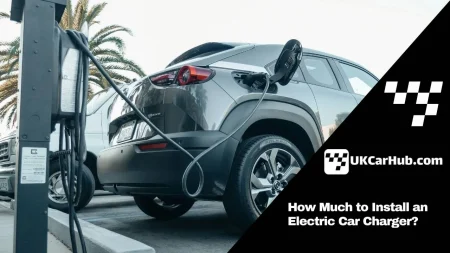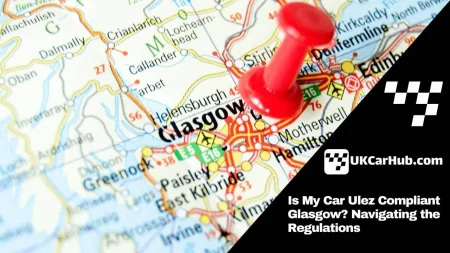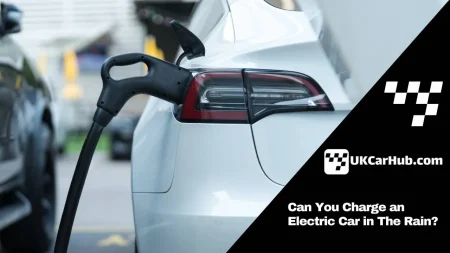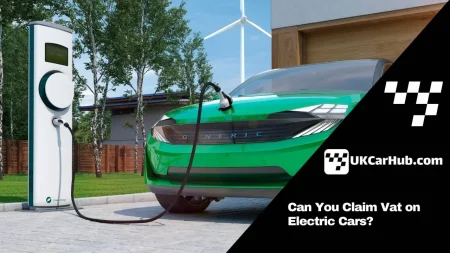As concern for the environment grows, the impact of car pollution is becoming an increasingly pressing issue in the UK. In this blog post, we will explore the relationship between air pollution and cars in the UK, as well as the efforts being made to reduce emissions through vehicle technology. We will also examine the specific impact of diesel cars on the environment and the promotion of electric vehicles as a more sustainable option. Additionally, we will discuss the environmental effects of traffic congestion and the role of government in addressing and mitigating car pollution. Stay tuned for an in-depth look at this important topic.
Air Pollution And Cars In The Uk
When it comes to environmental concerns, one of the major issues we face today is air pollution. In the United Kingdom, cars play a significant role in contributing to the overall air pollution levels. The high number of vehicles on the roads, along with outdated emission standards, leads to increased levels of harmful pollutants being released into the atmosphere.
The impact of car emissions on the environment cannot be ignored. The burning of fossil fuels in car engines releases carbon dioxide, which is a greenhouse gas responsible for global warming. Additionally, cars emit other pollutants such as nitrogen oxides (NOx) and particulate matter (PM), which have detrimental effects on both human health and the environment.
Addressing air pollution and reducing car emissions in the UK is crucial for the well-being of both the population and the planet. One approach to decreasing emissions is through advancements in vehicle technology. The development and implementation of cleaner and more fuel-efficient engines can greatly contribute to reducing the overall environmental impact of cars. This includes the use of hybrid and electric vehicles that produce fewer pollutants and have a lower carbon footprint.
- Table:
| Year | New Car Registrations |
|---|---|
| 2015 | 2,633,503 |
| 2016 | 2,692,786 |
| 2017 | 2,540,617 |
The UK government has recognized the importance of reducing car emissions and has implemented various policies and initiatives to tackle this issue. These include setting stricter emission standards, promoting the purchase and usage of electric vehicles, and investing in charging infrastructure. By encouraging the adoption of greener cars, the government aims to improve air quality and protect the environment.
Traffic congestion is another factor that contributes to air pollution in the UK. Long idle times and stop-and-go traffic not only waste fuel but also increase the emission of pollutants. To address this issue, efforts are being made to improve public transportation systems, encourage carpooling, and design urban areas in a way that reduces the need for private vehicles.
In conclusion, air pollution caused by cars is a significant environmental concern in the UK. However, through advancements in vehicle technology, government interventions, and efforts to address traffic congestion, it is possible to mitigate the impact of car pollution. By promoting the use of electric vehicles and implementing sustainable transportation solutions, we can work towards a greener and healthier future for both ourselves and the planet.
Reducing Emissions Through Vehicle Technology
In recent years, there has been growing concern about the environmental impact of cars, particularly in the UK where the number of vehicles on the road is constantly increasing. As a result, the need to minimize emissions has become a top priority. One effective way to address this issue is through the advancement of vehicle technology. With continuous innovation and development, new technologies are emerging that have the potential to significantly reduce emissions and make our cars more sustainable.
One key area of focus is the improvement of engine efficiency. Traditional combustion engines are known to produce harmful pollutants such as carbon dioxide, nitrogen oxide, and particulate matter. However, with advancements in technology, car manufacturers are now able to produce engines that are more fuel-efficient, resulting in lower emissions. This is achieved through the use of techniques such as turbocharging, direct injection, and variable valve timing, which optimize the combustion process.
A major breakthrough in reducing emissions is the introduction of electric vehicles (EVs) to the market. Unlike conventional cars that rely on internal combustion engines, EVs operate using an electric motor powered by rechargeable batteries. This eliminates tailpipe emissions entirely, making EVs a much cleaner and more environmentally friendly option. The UK government has implemented various incentives to promote the adoption of EVs, such as grants for purchasing electric cars and the installation of charging infrastructure across the country.
- Car manufacturers are also exploring alternative fuel options, such as hydrogen fuel cells. Unlike traditional engines, fuel cells produce electricity through a chemical reaction between hydrogen and oxygen, emitting only water vapor as a byproduct. Although this technology is still in its early stages, it shows great promise in terms of reducing emissions and achieving a greener future.
| Advantages of Vehicle Technology in Reducing Emissions | Disadvantages of Vehicle Technology in Reducing Emissions |
|---|---|
| – Improved fuel efficiency | – High initial cost |
| – Decreased reliance on fossil fuels | – Limited charging infrastructure for EVs |
| – Reduced air pollution and greenhouse gas emissions | – Limited availability of alternative fuel options |
Overall, reducing emissions through vehicle technology is crucial in addressing the environmental concerns associated with cars in the UK. Through advancements in engine efficiency, the adoption of electric vehicles, and the exploration of alternative fuel options, we can make significant progress towards a greener and more sustainable future. However, it is important to consider both the advantages and disadvantages of these technologies to ensure a well-rounded approach in achieving our environmental goals.
The Impact Of Diesel Cars On The Environment
Diesel cars have become increasingly popular over the years due to their fuel efficiency and powerful performance. However, their popularity comes at a cost – the impact on the environment. Diesel cars emit higher levels of pollutants compared to their gasoline counterparts, contributing to air pollution and environmental concerns.
One of the major concerns with diesel cars is the emission of nitrogen oxides (NOx). These emissions have been linked to respiratory problems and can also contribute to the formation of smog. In the UK, diesel cars have been identified as one of the main sources of NOx emissions, especially in urban areas with high traffic volumes. The continuous use of diesel vehicles has led to poor air quality, posing a threat to human health and the overall well-being of the environment.
In addition to NOx emissions, diesel cars also emit particulate matter, including fine particles and black carbon. These particles can penetrate deep into the lungs and have been associated with respiratory and cardiovascular diseases. The accumulation of particulate matter in the air also contributes to the formation of haze and reduced visibility. It is evident that the impact of diesel cars on the environment is not limited to air pollution, but also extends to other aspects such as climate change and ecosystem disruption.
- Another environmental concern associated with diesel cars is their contribution to greenhouse gas emissions, particularly carbon dioxide (CO2). While diesel vehicles may have higher fuel efficiency compared to gasoline cars, they still emit significant amounts of CO2. This greenhouse gas is one of the main drivers of climate change and is responsible for global warming. The UK government has set targets to reduce CO2 emissions, and the role of diesel cars in achieving these targets is being questioned.
| Impact of Diesel Cars on the Environment: | ||
|---|---|---|
| Air Pollution | Respiratory Problems | Particulate Matter |
| Greenhouse Gas Emissions | Climate Change | CO2 |
| Poor Air Quality | Smog | Ecosystem Disruption |
In conclusion, diesel cars have a significant impact on the environment, particularly in terms of air pollution, greenhouse gas emissions, and human health concerns. Although diesel vehicles may offer certain advantages such as fuel efficiency, it is important to consider the overall environmental consequences. It is crucial for governments, car manufacturers, and individuals to take action and explore alternative solutions such as promoting electric vehicles and investing in cleaner vehicle technologies. With collective efforts, we can mitigate the negative impact of diesel cars on the environment and work towards a greener and healthier future.
Promoting Electric Vehicles For A Greener Future
Electric vehicles (EVs) have emerged as one of the most promising solutions to tackle environmental concerns associated with traditional gasoline-powered cars. As the UK strives to reduce its carbon footprint and transition towards a greener future, promoting the adoption of electric vehicles has become increasingly crucial.
One of the key advantages of electric vehicles is their zero tailpipe emissions. Unlike internal combustion engines, which emit harmful pollutants such as carbon dioxide and nitrogen oxides, EVs produce no exhaust emissions while driving. This significant reduction in harmful pollutants has the potential to greatly improve air quality and reduce the impact of transportation on the environment.
Furthermore, electric vehicles also have the potential to play a crucial role in reducing greenhouse gas emissions. As the UK moves towards generating more electricity from renewable sources, such as wind and solar power, charging electric vehicles can become even greener. By charging EVs with electricity from renewable sources, the carbon footprint associated with vehicle operation can be further minimized.
In order to promote the adoption of electric vehicles, various measures need to be taken. Firstly, the government can incentivize the purchase of electric vehicles through grants and tax benefits. These incentives can help reduce the upfront costs of EVs and make them more accessible to a wider range of individuals.
Moreover, developing a robust charging infrastructure is crucial for the widespread adoption of electric vehicles. The UK needs to invest in public charging stations across the country, ensuring that EV owners have convenient access to charging facilities. Additionally, workplace charging programs can encourage individuals to switch to electric vehicles by providing charging stations at offices and commercial buildings.
In conclusion, promoting electric vehicles is vital for a greener future in the UK. With their zero tailpipe emissions and potential to reduce greenhouse gas emissions, EVs offer a sustainable solution to address environmental concerns associated with traditional cars. Through government incentives and the development of a comprehensive charging infrastructure, more individuals can be encouraged to embrace electric vehicles, leading to a greener and more sustainable transportation system.
Addressing Traffic Congestion And Its Environmental Effects

Traffic congestion is a major issue that arises from the significant increase in the number of vehicles on the roads. It not only hampers the smooth flow of traffic but also has severe implications for the environment. The United Kingdom (UK) is no exception to the detrimental effects of traffic congestion on the environment. This article will delve into the various environmental concerns associated with traffic congestion in the UK and explore potential solutions to address this pressing issue.
One of the key environmental concerns resulting from traffic congestion is air pollution. With an abundance of vehicles stuck in traffic for extended periods, the emission of harmful pollutants into the atmosphere rises dramatically. These pollutants, such as carbon dioxide (CO2), nitrogen oxides (NOx), and particulate matter, have detrimental effects on the quality of air we breathe. This not only impacts our health but also contributes to climate change and global warming.
To combat the environmental effects of traffic congestion, several measures can be adopted. Firstly, promoting the use of public transport and encouraging people to leave their cars at home reduces the number of vehicles on the roads, thus alleviating congestion. This can be achieved through effective public transportation systems, improved connectivity, and the introduction of innovative solutions such as ride-sharing services.
The Role Of Government In Tackling Car Pollution
When it comes to tackling car pollution, the role of the government is crucial. In the United Kingdom, where environmental concerns are high on the agenda, the government has been implementing various measures to address the issue. These initiatives are aimed at reducing emissions, promoting alternative modes of transportation, and encouraging the adoption of cleaner technologies. Let’s take a closer look at the actions taken by the UK government to combat car pollution.
One of the key steps taken by the government is the implementation of stricter emissions standards for cars. The UK has adopted the Euro emission standards, which set limits on the amount of pollutants that vehicles can release into the atmosphere. By enforcing these standards, the government ensures that car manufacturers produce vehicles that are more environmentally friendly. This not only helps in reducing air pollution but also encourages the development of cleaner vehicle technologies.
In addition to emissions standards, the government has also introduced financial incentives to promote the use of electric vehicles (EVs). Purchasers of new electric cars can benefit from grants, tax breaks, and reduced road tax rates. These incentives not only make EVs more affordable but also encourage people to switch from traditional gasoline or diesel vehicles to electric alternatives. By promoting the adoption of EVs, the government aims to decrease the overall carbon emissions from the transport sector.
- Moreover, the government has been investing in the development of charging infrastructure for electric vehicles. The availability of convenient and accessible charging points across the country is crucial for the widespread adoption of EVs. The government collaborates with private companies and local authorities to install charging stations in public spaces, residential areas, and along major road networks. This infrastructure development supports the transition to electric vehicles and addresses one of the main concerns associated with their use.
- Another important measure taken by the UK government is the promotion of sustainable transportation options. By investing in public transportation systems, cycling infrastructure, and walking paths, the government aims to reduce dependence on private cars. Improving public transportation not only reduces traffic congestion but also decreases the overall environmental impact of transportation. Encouraging cycling and walking as modes of travel further contributes to a greener and healthier environment.
| Actions Taken by the UK Government |
|---|
| Implementation of stricter emissions standards |
| Financial incentives for electric vehicles |
| Investment in charging infrastructure for EVs |
| Promotion of sustainable transportation options |
In conclusion, the UK government plays a vital role in tackling car pollution. Through the implementation of emissions standards, financial incentives for electric vehicles, investment in charging infrastructure, and promotion of sustainable transportation options, the government is actively working towards reducing the environmental impact of cars. These efforts are essential for creating a cleaner and more sustainable future.
Frequently Asked Questions
Question 1: How does air pollution from cars affect the environment in the UK?
Air pollution from cars in the UK contributes to a range of environmental issues, including smog, acid rain, and global warming. It also poses health risks, such as respiratory problems and cardiovascular diseases.
Question 2: How can vehicle technology help reduce emissions?
Vehicle technology, such as hybrid engines and electric vehicles, can significantly reduce emissions compared to traditional petrol and diesel cars. These technologies utilize alternative power sources, resulting in lower levels of air pollutants and greenhouse gas emissions.
Question 3: What is the impact of diesel cars on the environment?
Diesel cars produce more nitrogen oxides (NOx) and particulate matter (PM) compared to petrol cars, which have adverse effects on air quality and human health. Additionally, diesel emissions contribute to the formation of smog and are a major source of greenhouse gas emissions.
Question 4: How can promoting electric vehicles contribute to a greener future?
Promoting electric vehicles can greatly reduce carbon emissions as they do not produce any tailpipe emissions. By transitioning to electric vehicles, we can reduce the reliance on fossil fuels and combat climate change, leading to a greener and more sustainable future.
Question 5: How does traffic congestion impact the environment?
Traffic congestion leads to increased vehicle idling and stop-and-go driving, which results in higher fuel consumption and emissions. The release of pollutants from congested traffic negatively impacts air quality and contributes to higher levels of greenhouse gas emissions.
Question 6: What role does the government play in tackling car pollution?
The government plays a crucial role in addressing car pollution by implementing policies and regulations that promote the use of cleaner vehicles and reduce emissions. This can include incentivizing the purchase of electric vehicles, improving public transport infrastructure, and implementing stricter emission standards.
Question 7: How can individuals contribute to reducing car pollution?
Individuals can contribute to reducing car pollution by opting for greener modes of transport, such as walking, cycling, or using public transportation. They can also choose to drive fuel-efficient vehicles, carpool, and practice efficient driving techniques, such as avoiding unnecessary idling and maintaining proper vehicle maintenance.


















